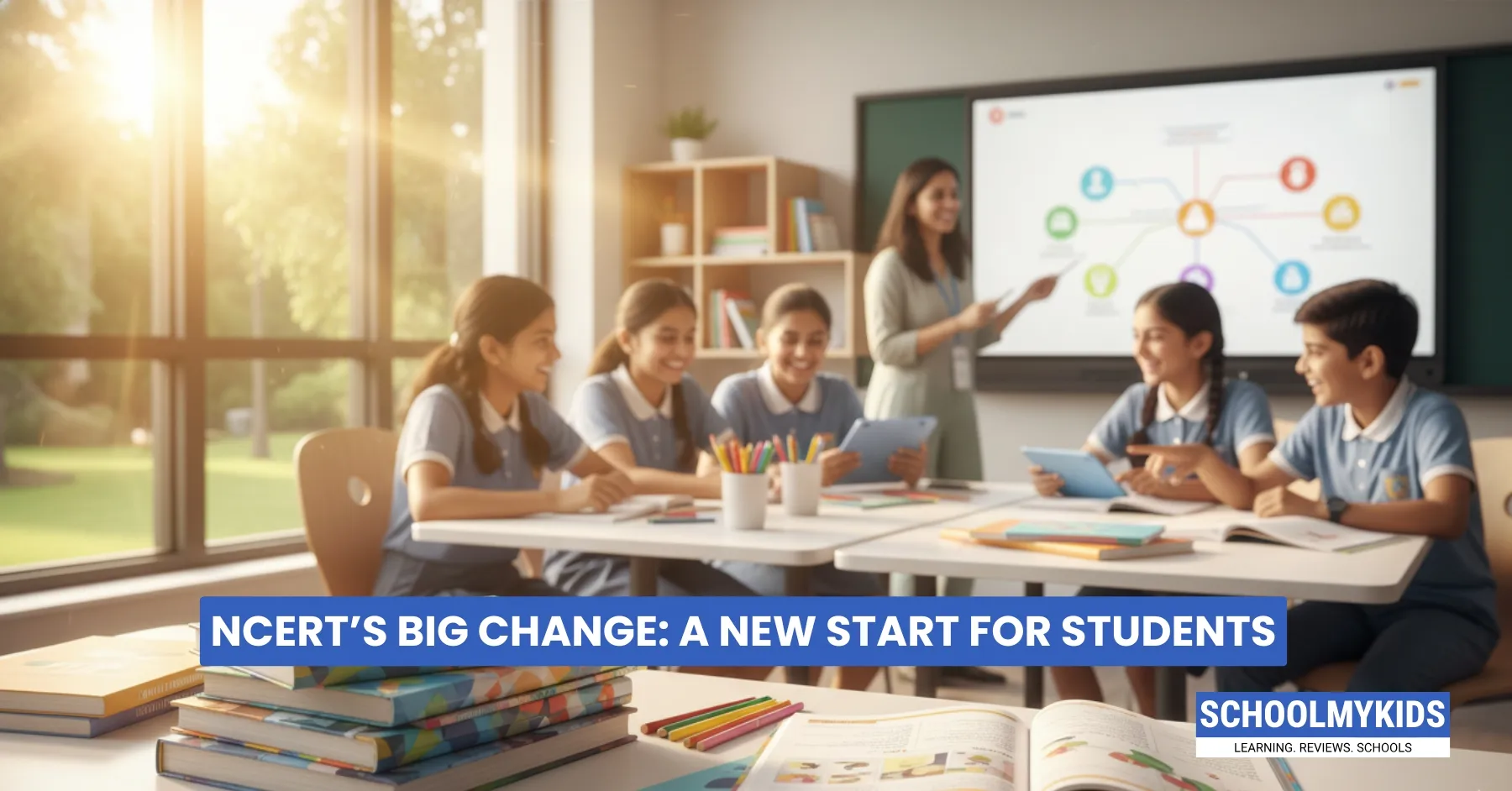Starting in the 2025-26 academic year, students in India will study new textbooks designed with fresh ideas from the National Education Policy (NEP) 2020. This is a major step in changing school education across the country. But to help students move smoothly into this new way of learning, NCERT has introduced “bridge courses”; short programs that prepare students for the new syllabus ahead.
What Are Bridge Courses and Why Are They Important?
If you’re wondering what a bridge course is, think of it like a friendly hand that guides you from the old syllabus to the new one. It helps students understand the changes in subjects and get ready for the next grade without feeling lost. NCERT provides a special booklet for this course, and teachers are trained to help students through it.
For example, students moving into class 11 will take a six-week bridge course to prepare for their new books and study patterns. However, students entering class 9 next year who have already shifted to the new syllabus from class 8 will not need to take this bridge course.
When Will the New Textbooks Be Available?
So far, NCERT has released new textbooks for classes 1 to 8. For classes 9 to 12, the new books will come out between February and July of 2026, with the full set ready by the next academic session (2026-27). Expert committees are working hard to design these books based on the latest national curriculum framework, which aligns with NEP 2020 principles.
The new books have less content than before, focusing more on activities, graphics, and easy-to-understand concepts to make learning enjoyable and clear.
What Does This Mean for Students and Parents?
For students, this change means adapting to a style of learning that may feel different if they’re used to only memorizing things. The bridge courses help ease this adjustment so that students feel confident and ready for new material instead of overwhelmed. It’s understandable if some students feel nervous at first, but with support from teachers and parents, they can do very well.
Parents can help by encouraging their children to take the bridge courses seriously and to see learning as an active, fun process. Supporting good study habits and giving kids time to rest and explore subjects through activities will make a big difference.
What Does This Mean for Education and Preparation?
NEP 2020 and NCERT’s implementation show a shift from rote learning to understanding and application. This helps students develop critical thinking, problem-solving, and creativity from an early age. It also prepares them better for future challenges, including the growing role of technology and vocational skills in the workforce.
Schools and teachers are also getting ready with training programs to adapt their teaching methods. This is a full ecosystem change—to prepare students not just for exams but for life beyond school.
Conclusion
Change can feel uncomfortable, but this change is actually aimed at making education less stressful and more effective. The bridge course is NCERT's way of making sure no student is left confused or struggling when the new textbooks arrive.
Whether you need the bridge course or not, stay informed, stay prepared, and remember, these changes are happening to help you learn better, not to make things harder. The education system is trying to move away from rote learning and toward real understanding, and that's something we should all welcome.








Be the first one to comment on this story.